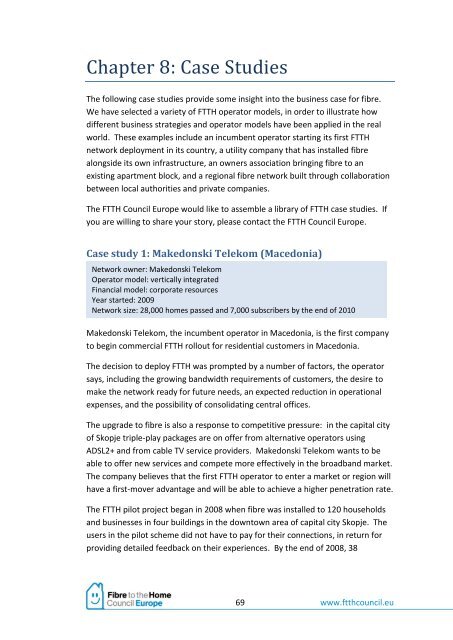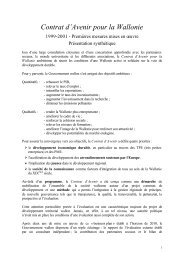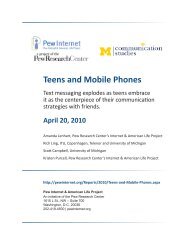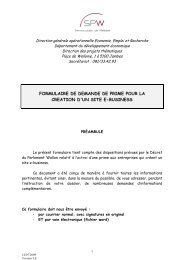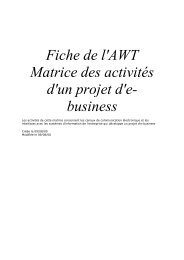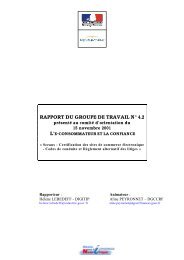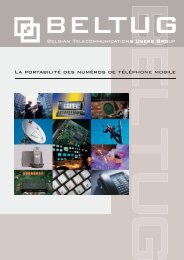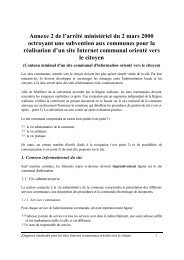Create successful ePaper yourself
Turn your PDF publications into a flip-book with our unique Google optimized e-Paper software.
Chapter 8: Case Studies<br />
The following case studies provide some insight into the business case for fibre.<br />
We have selected a variety of <strong>FTTH</strong> operator models, in order to illustrate how<br />
different business strategies and operator models have <strong>be</strong>en applied in the real<br />
world. These examples include an incum<strong>be</strong>nt operator starting its first <strong>FTTH</strong><br />
network deployment in its country, a utility company that has installed fibre<br />
alongside its own infrastructure, an owners association bringing fibre to an<br />
existing apartment block, and a regional fibre network built through collaboration<br />
<strong>be</strong>tween local authorities and private companies.<br />
The <strong>FTTH</strong> Council Europe would like to assemble a library of <strong>FTTH</strong> case studies. If<br />
you are willing to share your story, please contact the <strong>FTTH</strong> Council Europe.<br />
Case study 1: Makedonski Telekom (Macedonia)<br />
Network owner: Makedonski Telekom<br />
Operator model: vertically integrated<br />
Financial model: corporate resources<br />
Year started: 2009<br />
Network size: 28,000 homes passed and 7,000 subscri<strong>be</strong>rs by the end of 2010<br />
Makedonski Telekom, the incum<strong>be</strong>nt operator in Macedonia, is the first company<br />
to <strong>be</strong>gin commercial <strong>FTTH</strong> rollout for residential customers in Macedonia.<br />
The decision to deploy <strong>FTTH</strong> was prompted by a num<strong>be</strong>r of factors, the operator<br />
says, including the growing bandwidth requirements of customers, the desire to<br />
make the network ready for future needs, an expected reduction in operational<br />
expenses, and the possibility of consolidating central offices.<br />
The upgrade to fibre is also a response to competitive pressure: in the capital city<br />
of Skopje triple-play packages are on offer from alternative operators using<br />
ADSL2+ and from cable TV service providers. Makedonski Telekom wants to <strong>be</strong><br />
able to offer new services and compete more effectively in the broadband market.<br />
The company <strong>be</strong>lieves that the first <strong>FTTH</strong> operator to enter a market or region will<br />
have a first-mover advantage and will <strong>be</strong> able to achieve a higher penetration rate.<br />
The <strong>FTTH</strong> pilot project <strong>be</strong>gan in 2008 when fibre was installed to 120 households<br />
and businesses in four buildings in the downtown area of capital city Skopje. The<br />
users in the pilot scheme did not have to pay for their connections, in return for<br />
providing detailed feedback on their experiences. By the end of 2008, 38<br />
69 www.ftthcouncil.eu


